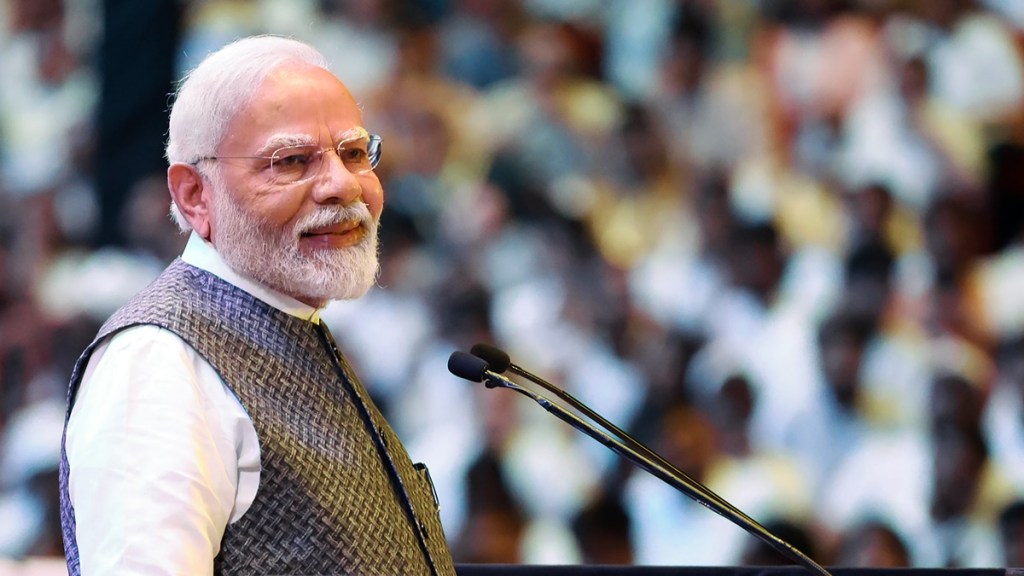Prime Minister Narendra Modi is set to lay the foundation stone of several infrastructure projects including roads and railways during his visit to Telangana on Sunday. These developmental projects are worth more than Rs 6800 crore. The Prime Minister is scheduled to reach Mahabubnagar district at around 14:15 hrs.
Road projects:
During his visit to the state, the Prime Minister will lay the foundation stone of key road projects – (a) 108 km long ‘four lane access controlled Greenfield highway from Warangal to Khammam section of NH-163G and (b) 90 km long ‘four lane access controlled greenfield highway from Khammam to Vijayawada section of NH-163G.
Both the projects are part of Nagpur – Vijayawada Economic Corridor. It will be developed at an estimated cost of around Rs 6400 crore. On completion, the travel distance between Warangal and Khammam will be reduced by almost 14 km while the distance from Khammam to Vijayawada will reduce to 27 km.
He will also dedicate Suryapet to Khammam section road project of NH-365BB to the nation. The project constructed at a cost of about Rs 2,460 crore is a four-lane highway. This 59-km-long project is a part of Hyderabad – Visakhapatnam Corridor and has been developed under Bharatmala Pariyojana. This will also improve the connectivity between Khammam district and coastal regions of Andhra Pradesh.
Rail projects:-
Later in the day, the Prime Minister will dedicate Jaklair–Krishna new rail line project. The 37-km-long railway line has been built at a cost of more than Rs 500 crore. This rail line will prove to be beneficial for people of areas near Narayanpet district.
He will also flag off the inaugural Hyderabad (Kacheguda) – Raichur – Hyderabad (Kacheguda) train service from Krishna station via video conferencing. The train service will connect Hyderabad, Rangareddy, Mahabubnagar, Narayanpet districts in Telangana with Raichur district in Karnataka.
The service will provide first-time rail connectivity to several new areas in backward districts of Mahabubnagar and Narayanpet, benefiting students, daily commuters, labourers, and local handloom industry in the region.
